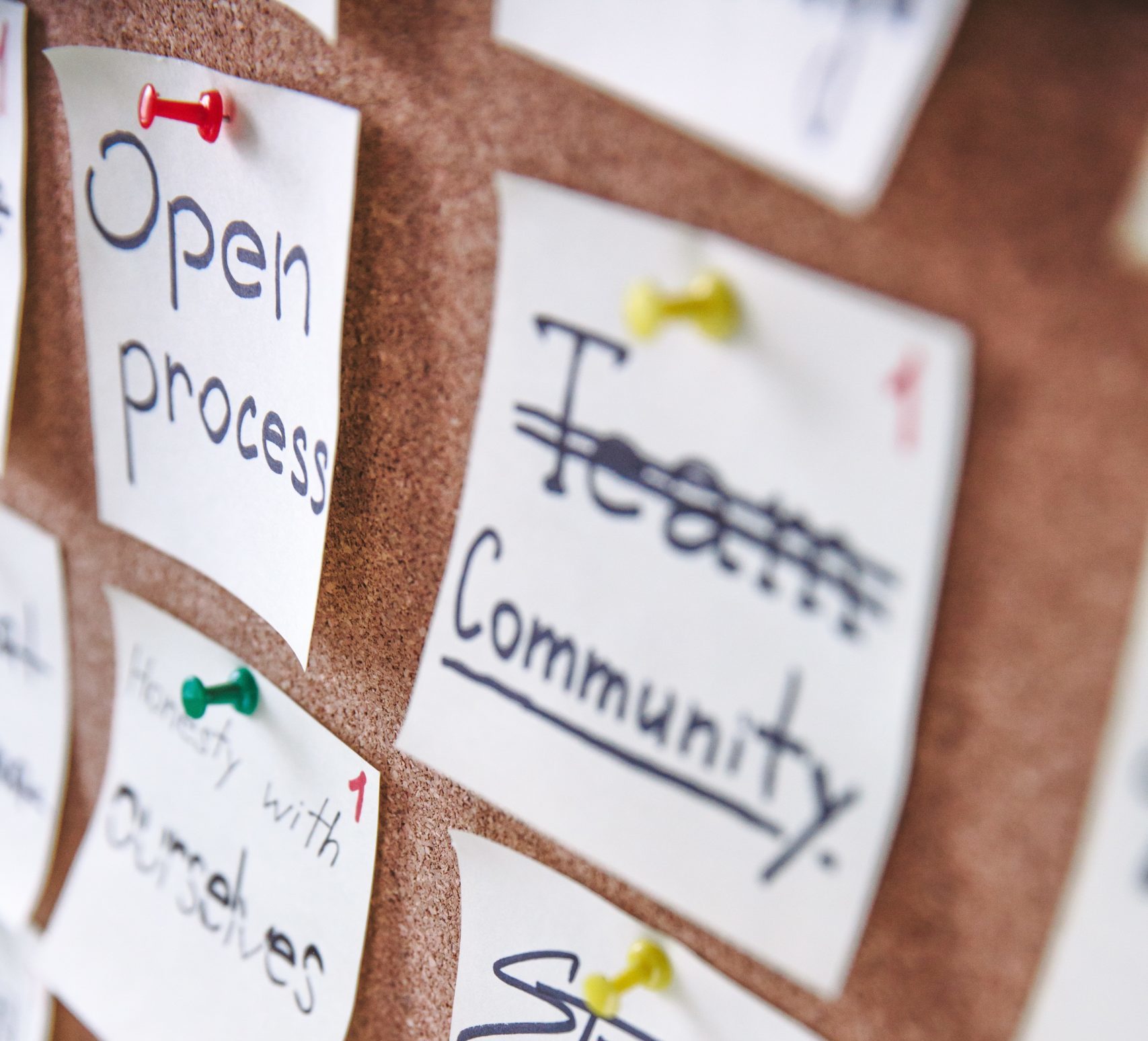Microsoft, Humanity United, and Berkeley-Haas Partner to Advance Human Rights in Management Education and Practice

In celebration of International Human Rights Day, the Human Rights & Business Initiative (opens in a new tab) (HRBI) coordinated through the Center for Responsible Business (CRB) at Berkeley-Haas is excited to announce new partnerships with Microsoft and Humanity United, two global leaders in the advancement of corporate human rights management.
Partnering with Microsoft and Humanity United will help accelerate and scale HRBI’s efforts to embed human rights in management education and to mobilize the power of business to advance human rights through teaching, research, innovation, and collaboration. Launched on Human Rights Day in 2015 and led by HRBI’s Faris Natour and Marissa Saretsky, as well as the CRB’s Executive Director, Robert Strand, the initiative has generated strong momentum and traction at UC Berkeley and beyond in its first year.
Microsoft, a worldwide leader in software, services, devices and solutions, is excited about the opportunities that its partnership with HRBI presents. “Embedding human rights in management education, producing actionable research and providing a safe forum for dialogue and collaboration is critical to the advancement of our society. We hope this initiative will inspire and prepare the next generation of leaders to address the global challenges we face as a society,” said Susan Hauser, Corporate Vice President of Business and Corporate Responsibility at Microsoft.
Humanity United, a non-profit that works actively on human rights issues such as forced labor and human trafficking, has expressed its interest in collaborating directly with UC Berkeley students and faculty. Ed Marcum, Managing Director at Humanity United expressed that “[Our] staff are eager to participate in the events and academic courses. . . we hope to share with students what we are seeing in our field and we look forward to their engagement in research projects and courses and at campus events.”
“Our objective with the Human Rights & Business Initiative is to ensure that the next generation of business leaders have the tools to ensure business respect for human rights and the skills to mobilize the power of business to solve the world’s most urgent human rights challenges,” said Robert Strand, Executive Director of the Center for Responsible Business. Faris Natour, Director of the Human Rights and Business Initiative, added “Our students will benefit tremendously from both Microsoft’s and Humanity United’s extensive practical experience in managing business and human rights issues while our strength in research and innovation will help both partners succeed in advancing their human rights agendas.”
We sat down recently with Microsoft’s Susan Hauser and Humanity United’s Ed Marcum to discuss their work advancing human rights and their support for the Center for Responsible Business at Berkeley-Haas:
- Why have you decided to partner with the Human Rights & Business Initiative at the Berkeley-Haas Center for Responsible Business?
SH: Technology is increasingly a gateway to the enjoyment of many human rights and the empowerment of people across the globe. Think, for example, of privacy, freedom of expression, inclusion, education and employment. At Microsoft, we are working hard every day to help ensure that our products and services respect the rights of our customers, wherever they are. But, we know that we can’t do that alone. We need to work in partnership with customers, governments, civil society and academia to ensure that we understand how to harness the beneficial power of technology to help realize and sustain human rights everywhere. We believe there is opportunity to improve both rights-aware decision-making in businesses and one of the key elements to achieving that is embedding the focus on human rights issues directly into business and management education. That is where this partnership with Haas comes in.
EM: We recognize that the Berkeley-Haas Center for Responsible Business is a leader in working with faculty, students, and business to promote ethical business practices. As such, we believe that the Human Rights & Business Initiative will advance the concept of rights-aware decision-making among business and other leading business schools in the country.
- What do you hope to you bring to the partnership?
SH: Microsoft is committed to being a highly ethical business. The values of responsibility, trust and inclusivity are core to the conduct of all our employees, whether they work in engineering, sales, legal and corporate affairs or elsewhere. I hope that sharing Microsoft’s experience in driving these behaviors will prove useful to students, faculty and the other stakeholders who participate in the partnership. I also hope that we can further enhance our own commitment to ethical business practices and legal compliance through the insights we gain from the partnership as well.
EM: Humanity United builds, leads and supports efforts to change the systems that contribute to human trafficking and forced labor in supply chains. As a private foundation, we work with civil society, government, investors, and large multinational corporations to provide the means and motivation for companies to improve their business practices and reduce labor exploitation in global supply chains. We look forward to bringing our experience and commitment to working in partnership with all our stakeholders to our relationship with the Human Rights & Business Initiative.
- What issues would you like to address by working with the Human Rights & Business Initiative?
SH: Integrating human rights decision-making across key aspects of our business is essential if Microsoft is to achieve our mission of empowering every person and every organization on the planet to achieve more. We are passionate about that mission. For example, the Microsoft Technology and Human Rights Center is focused on a wide variety of human rights issues and, in particular, I believe this work with Haas opens up tremendous opportunities to explore in detail critical issues such as accessibility, freedom of expression, privacy and online safety. We couldn’t be more excited for this partnership with Haas to deepen understanding of how technology and business decision-making intersect with advancement of human rights.
EM: The goods we consume in today’s economy are often produced far from where they are purchased, successively changing hands along complex and opaque supply chains. This creates the space for labor exploitation and other forms of human rights abuses. By working with the Human Rights & Business Initiative, we hope to promote decision-making in the private sector that incorporates human rights considerations. We are particularly looking forward to working with the Human Rights & Business Initiative on the Values to Valuation (opens in a new tab) research project that will explore the link between corporate financial performance and human rights performance and advance the conversation about that link among corporations, investors, civil society and academia.
- What exciting ways do you anticipate involving students?
SH: In February 2017, Berkeley-Haas and Microsoft will co-host a conference on the human rights implications of AI, big data and other new technologies. I hope that every interested student can join the dialogue with the technology and human rights experts who will participate. Also, in mid-2017, students are invited to participate in our human rights hackathon at Berkeley, and to keep an eye out for the potential student projects which are currently under development.
EM: Humanity United staff are eager to participate in the events and academic courses organized by the Center for Responsible Business and the Human Rights & Business Initiative. We hope to share with students what we are seeing in our field and we look forward to their engagement in research projects and courses and at campus events.


